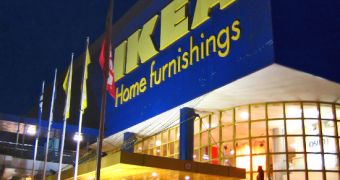Earlier this week, IKEA debuted a new fundraising campaign intended to benefit people living in refugee camps in Ethiopia, Chad, Bangladesh, and Jordan.
Talking to the press, the Swedish furniture retailer detailed that its goal in launching this initiative was to raise enough money to provide said groups of people with environmentally friendly lighting options and better stoves.
“Life in a refugee camp can be very hard, particularly for children. The absence of powered light limits everyday activities we take for granted such as sharing a meal or doing your homework,” explained Per Heggenes, chief executive of IKEA Foundation.
“It impacts safety and security and the ability for families to generate an income,” Per Heggenes further stressed, as cited by Business Green.
The fundraising campaign ends this coming March 29, and the people who wish to support this initiative need only walk into an IKEA store and purchase an LED light bulb.
Thus, the Swedish furniture retailer says that, for each such bulb that is sold while the campaign is ongoing, it will donate €1 ($0.73) to the United Nations Refugee Agency.
The latter is expected to use this money to purchase solar lamps and lanterns, and fuel-efficient stoves intended to be used by over 3.45 million people currently living in refugee camps in said four countries.
According to IKEA, just one solar street lamp installed as a result of this initiative can provide light for as many as 300 refugees. A solar lantern, on the other hand, can meet the demands of a family of five.
As far as cooking stoves are concerned, it would appear that the ones IKEA wants to buy are of the fuel-efficient kind.
This means that not only will they perform as well as ordinary ones while using less resources, and therefore yield economic benefits, but they will also produce less air pollution, simply because they will require less fuel to keep up and running.

 14 DAY TRIAL //
14 DAY TRIAL //